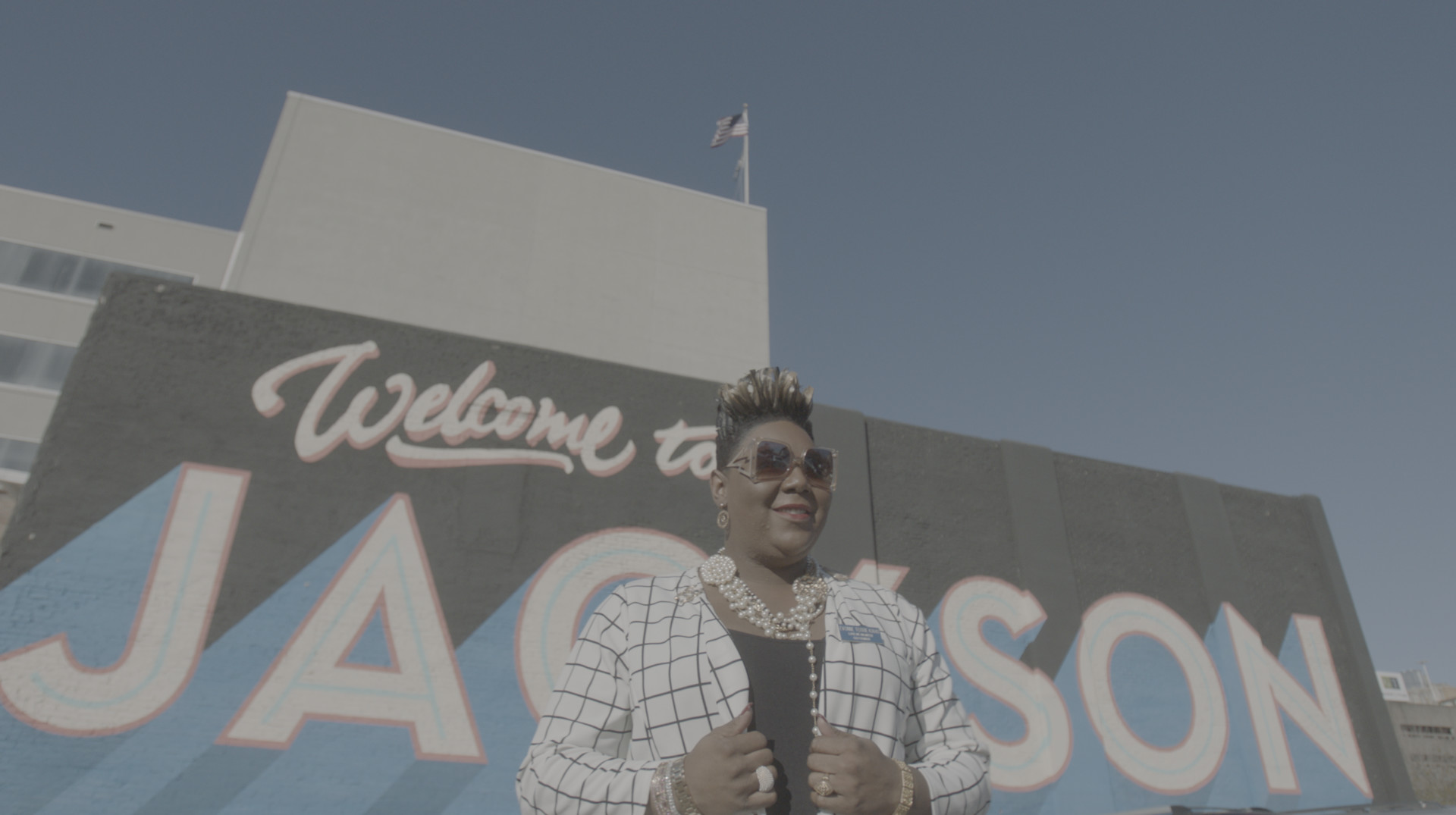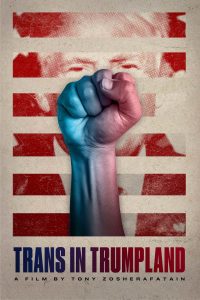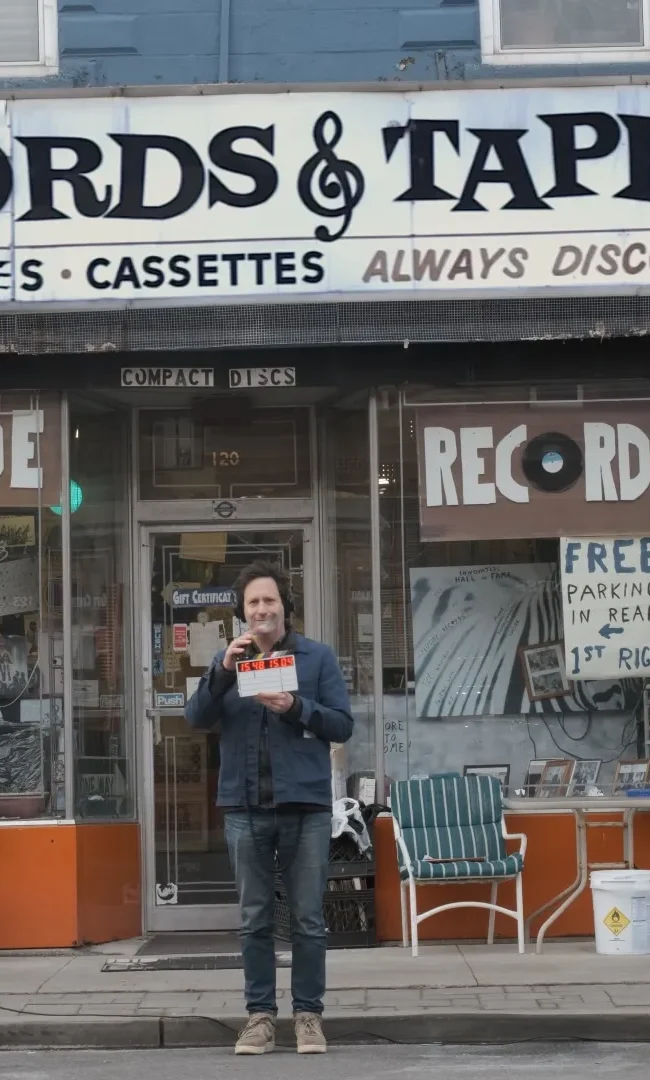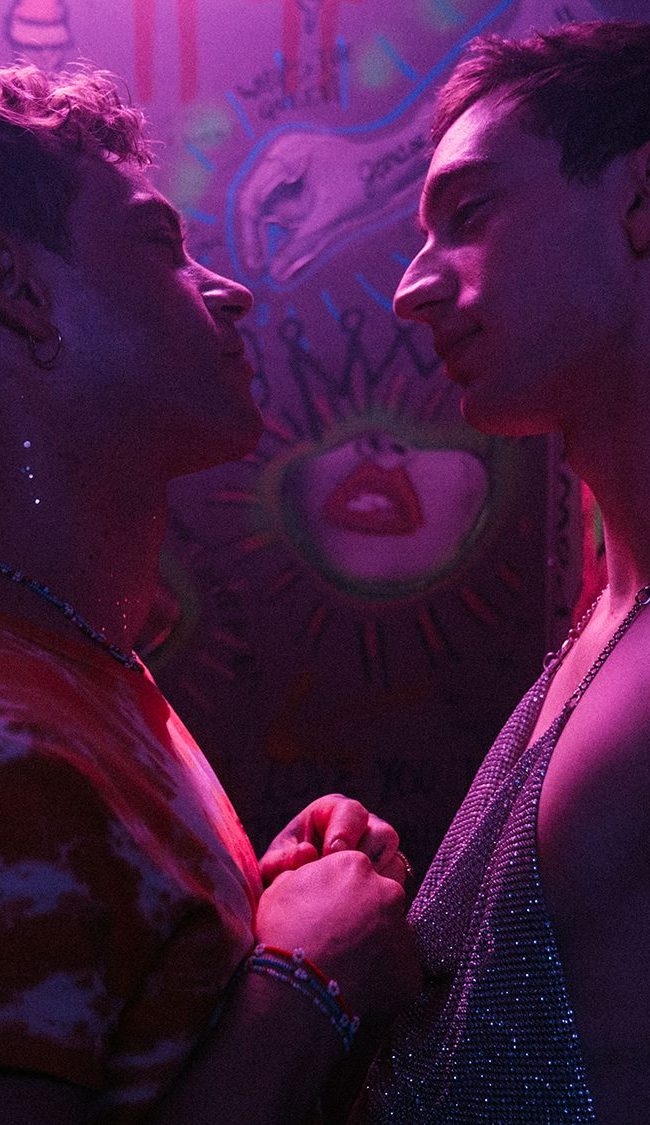A Conversation with Tony Zosherafatain & Trace Lysette (TRANS IN TRUMPLAND)

It’s been a rough four year for those of ‘guilty’ of being trans under Trump. On President Trump’s inauguration day, the administration scrubbed all mentions of LGBTQ people from the websites of the White House, Department of State, and Department of Labor. Five months later the Department of Health and Human Services (HHS) announced a plan to roll back regulations interpreting the Affordable Care Act’s nondiscrimination provisions to protect transgender people. In July of 2017, Trump tweeted that “the United States Government will not accept or allow Transgender individuals to serve in any capacity in the U.S. Military” and a month later released a memo directing Defense Department to move forward with developing a plan to discharge transgender military service members and to maintain a ban on recruitment. By September the Justice Department was arguing for a constitutional right for businesses to discriminate on the basis of sexual orientation and, implicitly, gender identity on behalf of the United States in the U.S. Supreme Court. Two years later, they would push further, arguing that federal law “does not prohibit discrimination against transgender persons based on their transgender status.” In February 2018 the Department of Education announced it would summarily dismiss complaints from transgender students involving exclusion from school facilities based solely on gender identity discrimination and in March reiterated that the Trump administration would refuse to allow transgender students to use bathrooms and locker rooms based on their gender identity. Also in March the Bureau of Prisons in the Department of Justice adopted a policy of entirely housing transgender people in federal prison facilities that match their sex assigned at birth, rolling back existing protections. In October 2018 U.S. representatives at the United Nations worked to remove references to transgender people in UN human rights documents. In May 2019, the Department of Health and Human Services published a final rule encouraging hospital officials, staff, and insurance companies to deny care to patients, including transgender patients, based on religious or moral beliefs. Four months later, the Department of Health and Human Services cancelled a plan to explicitly prohibit hospitals from discriminating against LGBTQ patients as a requirement of Medicare and Medicaid funds. In May 2020, the Department of Education issued a letter declaring that the federal Title IX rule requires school to ban transgender students from participating in school sports, and threatening to withhold funding from Connecticut schools if they do not comply. In July, the Department of Housing and Urban Development formally announced the rollback of a previous rule that protected transgender people from discrimination by homeless shelters and other housing services receiving federal funds.
Phew…I meant for that opening paragraph to be a couple sentences but it has really been an awful administration for us. Just in Texas alone (my home state), Trump nominated Judge Matthew J. Kacsmaryk to the US District Court for the Northern District of Texas – Kacsmaryk transgender people a “delusion” – and Judge Jeff Mateer to US District Court for the Eastern District of Texas, who called transgender children part of “Satan’s plan” and openly supported conversion therapy. VP Mike Pence also believed in that ‘cure’ and his wife taught at a school that bars staff from engaging in or condoning “homosexual or lesbian sexual activity” and “transgender identity.”
In this moral wilderness, Director Tony Zosherafatain travels across the country for his new series Trans In Trumpland, shedding light on the Trans experience in America, as well as looking at his own experience as a trans man. The series’ subjects represent a wide illustration of the Trans community, from 13-year-old Ash in North Carolina, home to the infamously discriminatory ‘bathroom ban,’ disallowing trans people from using the bathroom of their true gender, to Shane from Idaho; an Indigenous Army veteran who speaks out against the Trump administration’s Trans military ban.
Trans in Trumpland examines the struggles and resiliency of Transgender Americans under the Trump administration and features intersectional issues such as race, immigration, and poverty. The series, created by Trans-owned production company TransWave Films. According to Zosherafatain and Producer Jamie DiNicola, we may be at a ‘trans tipping point,’ with transgender narratives becoming more and more common within mainstream media; however, most of those stories don’t have trans and queer people behind the camera telling them. Zosherafatain and DiNicola have also brought one my personal heroes Trace Lysette (Transparent, Hustlers) onboard as an Executive Producer
I had a chance to zoom chat with Zosherafatain and Lysette before the series’ Feb 25th premiere on TOPIC, a he new streaming service from First Look Media (launched by eBay founder and philanthropist Pierre Omidyar).
Hammer to Nail: Tony, when did you get the desire to start telling these stories? Because it seems to be very much connected to your own story, you’re talking about yourself. But at what point in time did you say, “I want to make a movie and I want to go visit four people?”
Tony Zosherafatain: Yeah, for sure. I’m a trans guy, child of immigrants, Iranian American. So Trump really devastated me in a lot of ways, going back to that first week he took office, and I immediately, that same night he won, I was in Massachusetts with my mom at the time, which she unfortunately passed. I had a deep connection to her. And I remember thinking, I was like, “Seriously, did he really win?” And my mom was like, “Yeah, I guess so.” I was having trouble sleeping, having nightmares. And randomly three days later, in 2016, that first week he was in office, Trans in Trumpland, just popped into my head. As a filmmaker, that sounds catchy. And I had a feeling, I was like, “He’s going to come for trans people.” And he did that first week.
HtN: How did you decide where to visit?
TZ: And as we got into 2017, I thought to myself like, “Okay. If I’m a trans New Yorker, I have some legal rights, but what about the folks in Texas and North Carolina and Mississippi and Idaho? What about them? How are they going to be impacted by Trump and his anti-trans hatred and policies?” So I really was motivated to highlight what they were going through rather than me, like someone in New York or out there, Cali, has a different experience as a trans person.
HtN: And then of course, the film has the New York experience anyway, because it has you in it as well.
TZ: So essentially, I was like, “Am I going to be part of this? Am I just going to direct it? Or am I going to host?” And I thought to myself like, “Well, there’s got to be some glue there that connects the four characters. They’re all in different states, they’re all different trans identities, what have you.” And I realized that I could glue this thing together with my personal story and just my journey through America.

The “Trans in Trumpland” poster
HtN: I love the way you brought your own story in, but didn’t outshine them. You let them speak for themselves, which was nice. Was there ever a feeling that it was going to be a feature film, not intercut as like separate episodes, or was that always your intention to go one person and then the next person?
TZ: Oh, totally, good question. Yeah, no, I went into this and I was like, “This should be a feature.” And so when we produced it in 2019, it was definitely going to be a feature. And we made the switch like early 2020, because our sales agent was like, “I got to be honest with you. This is really going to be hard to cut as a feature. Everyone’s so diverse.” We were lucky because we were cutting everything as a short anyways, so we were able to just keep it as like a short rather than cut as a feature. So we lucked out a bit.
HtN: Trace, [oh my god, I can’t believe I just called her Trace like I know her…why do I never have that thought with anyone else, sorry, had to interject] let me ask you how you became involved with the film and why you wanted to be involved with it.
Trace Lysette: I’d been looking for a doc to get involved with for a while. I was deeply inspired by my sister and good friend, Laverne [Cox], and her work in the doc space [with Disclosure]. She’s really good at wearing multiple hats and just doing a lot for activism outside of her acting and visibility and acting. So it just came across our desk and I was like, “Wow, they’ve certainly got some beautiful footage in there. They’ve gotten a nice foundation for their project.” And I was really taken by the cast members and their stories and everything that was going on in States that don’t have the same privileges that we do in LA and New York. And I know how hard it was for me transitioning in Brooklyn. And I can only imagine what it was like for people in Texas and North Carolina and Mississippi and Idaho. It’s just they’re behind the times in a lot of
HtN: What about working on a film with a Trans director and Producer?
TL: Having it be a trans led team, just made it that much easier for me because I didn’t feel like I was pushing up against a lot of like cis opinions, it was more like if they wanted my notes,. And they were like, “Yeah, no, this is dead on. Thank you for catching these things,” or, “This only makes it better.” And it just helped the project in a way that was unique to having a trans team because that’s not always the case in our industry. So…
HtN: Yeah. Well, I do think that it’s been a really nice thing recently that we’re seeing trans representation in the documentary space, especially with Disclosure, like you mentioned and this film. And it makes me feel like why are we doing so well in the documentary space but it’s still difficult to get a feature film that has Trans director with the Trans actress playing a Trans role? And you’ve got all this weirdness of people ‘putting on a character’ when you have people out there who could just do the work?
TL: Right. Right.
HtN: Why do you think that’s true?
TL: Well, I think in the doc space, it’s easier to just turn on the cameras and let people see a subject versus like a feature film. For example, something scripted, it’s Hollywood. And Hollywood is many things. It’s superficial, it’s cutthroat, it is political, it is who knows who, it is nepotism, it is a lot of cis privilege, a lot of white privilege, and old boys club. And we’re battling all those things. When you’re a trans woman, you’re battling so many of those things. And it’s really hard to get funding. I’ve been attached to so many different feature films and series in the past three, four years that are still stuck in funding land, trying to get the funds they need so that we can get them made. And then as far as like the big budget stuff, whether it was Danish Girl or whatever, they reached for that A-list leading man to go and play us, which is mind-blowing and so frustrating because as good of a job as Eddie Redmayne or whoever can do, it’s not what we can do and it never will be.
HtN: How do you feel when you see a role like that, or like I’m remembering the Scarlett Johansson thing [Rub & Tug] that came up or…When we hear about those things, how does it make you feel as an actress that they’re not even taking an interview, not even reaching out to you and seeing if you might be appropriate?
TL: Well, I’ve spent many nights thinking about this and I have to sometimes just go towards the joy and where people are reaching back for me, which is just creating my own projects and going towards other trans folks like Tony who are doing their own thing, because I think no one’s going to look out for us like we do. And of course, we have allies. Like I was so blessed and lucky to meet Lorene Scafaria and get to play a role in Hustlers, which was arguably the first time I’ve seen a trans person in a large blockbuster film like that.
HtN: Yeah, exactly.
TL: It wasn’t really focusing on my transness even, it was just like, “Okay, this girl is an actress. She’s been here doing her thing, and she deserves to be a part of this,” which was refreshing to me. So it’s not to say that cis allies aren’t out there, I just think it’s easy to turn a blind eye and go for your big A-list name, cis name, and just stay in that bubble, instead of considering us. We’ve been watching cis people win awards for playing us for 40 plus years. And there’s so many talented trans people out here doing great work. And I just feel like it’s really hard for us to even get a nomination. I mean, we’ve seen Laverne get her roses and that’s been lovely, but there’s a lot of us out there that are doing great work. So I just hope that that shifts as well.

A still from “Trans in Trumpland”
HtN: Well, I just have to tell you that you are an inspiration for me, so thank you. And I think it’s so great what you’re doing with a project like this and helping Tony out. Tony, this is a very inspiring project. When you stepped away from these four people, how do you feel about Trans in Trumpland, now that we’re actually in Biden-land?
TZ: I think it does suck that we weren’t able to get out before the election. We were hoping for it, but sadly editing wasn’t done in time. But I think now that we have trans in Biden land and whatever, I want to say like I’m definitely optimistic with Biden. I think that his administration is really going to change things for Trans Americans, but the same time the state rights issues that are discussed in Trans in Trumpland and where the characters live, I don’t think that’s really going to change much, to be honest, for the next four years. If it does, it will be like a snail pace rather than like the federal level is going to go rollercoaster pace. We’re still in this weird transitional phase right now. I like that the series encapsulates what happened over the past four years. And it’s like this happened for a reason. There’s a lot of structural inequalities and issues that our country faces. How’s that going to change, you know?
HtN: Yeah. One of the things I loved about the film is it didn’t pick the simple trans people. I mean, you did have somebody who was trying to get asylum and you did have somebody who was in the military, who essentially was right at the crossroads of Trump’s anger. So I thought that was really great, the way you hit a couple more complicated issues, show the intersectionality of these issues.
TZ: Yeah, no, definitely. Going into casting for the four characters, I thought to myself like we’ve seen, I feel like a lot of trans stories, but I have to be honest, a lot of it has been white trans folks, I think predominantly. And so I had to be very conscious of that and say to myself like, “Who exactly is going to be casted? How are they different from each other? How is it a trans story we haven’t seen on screen in both fiction and nonfiction?” Like Texas with Rebecca, ICE was a big point of discussion. Like detentions were really bad human rights. That’s like freaking cruelty under the Trump administration. So I was like, she’s perfect for it because when do you hear as much about like a trans detainee, right? And the transphobia she faced it’s like it’s insane. I mean, they literally refused to house her with women. Are you kidding me? Like that’s crazy.
HtN: And I know that there’s a little casting that comes in finding the team that you want to work with. So let me just finish this up by saying, how did you approached Trace as a producer and what were you interested in having her involvement add to the film?
TZ: Yeah, for sure. So my producer and friend, Jamie [DiNicola], and I, we were like, “Who do we want ideally to EP this?” And back when we were creating the film, we just didn’t really have the time to get someone. I think also we needed proof of concept to get a good EP. So we were like, “Okay, Trace Lysette, was in Transparent, we’re a fan of her work.” We were like, “She seems like a really good fit.” So we just hopped on IMDbPro, found her agents. We were like, “Okay, let’s talk to them. Let’s start a conversation.” And I really appreciated that Trace was committed to working on the doc side of this in like a little more activist role in a sense, and just really helping with creative input and feedback and just telling us how she felt about each episode. And Jamie and I are trans men too, so we really valued her input as like a trans woman and an actress. So it worked well in that regard.
—–
POST INTERVIEW THOUGHTS. This documentary is so inspiring. It’s just a series of portraits that shows us as us, living our lives under what can only be called a repressive regime. I personally rushed to change my name and gender marker, thinking any day that might be made illegal. And I couldn’t talk to Trace Lysette without pulling her off topic to discuss Queer/Trans-Authenticity which is becoming a major frustration for me (see my piece on the Queer film The World To Come made without an Queer artists at the table). Lysette is one of the only Hollywood Insiders who also happens to be Trans. The fact that she is using her celebrity to help Trans in Trumpland reach an audience is emblematic of a true star who speaks with her work.
Trans in Trumpland is available on February 25th to US and Canadian audiences on Topic through Topic.com and Topic channels through AppleTV & iOS, Roku, Amazon Fire TV, Android, and Amazon Prime Video Channels.
– Bears Rebecca Fonté (@BearsFonte)











